Faith, will, and revival Azerbaijan restores historical justice
On 28 October, while presenting keys to new apartments for residents of Horovlu village in the Jabrayil district, President of Azerbaijan Ilham Aliyev described the occasion as historic — a day when people were returning to their ancestral homeland.
“We proved that we had no intention of accepting the occupation,” the head of state emphasised. “We are the owners of these lands. We have expelled the enemy and are building a wonderful life here today.”
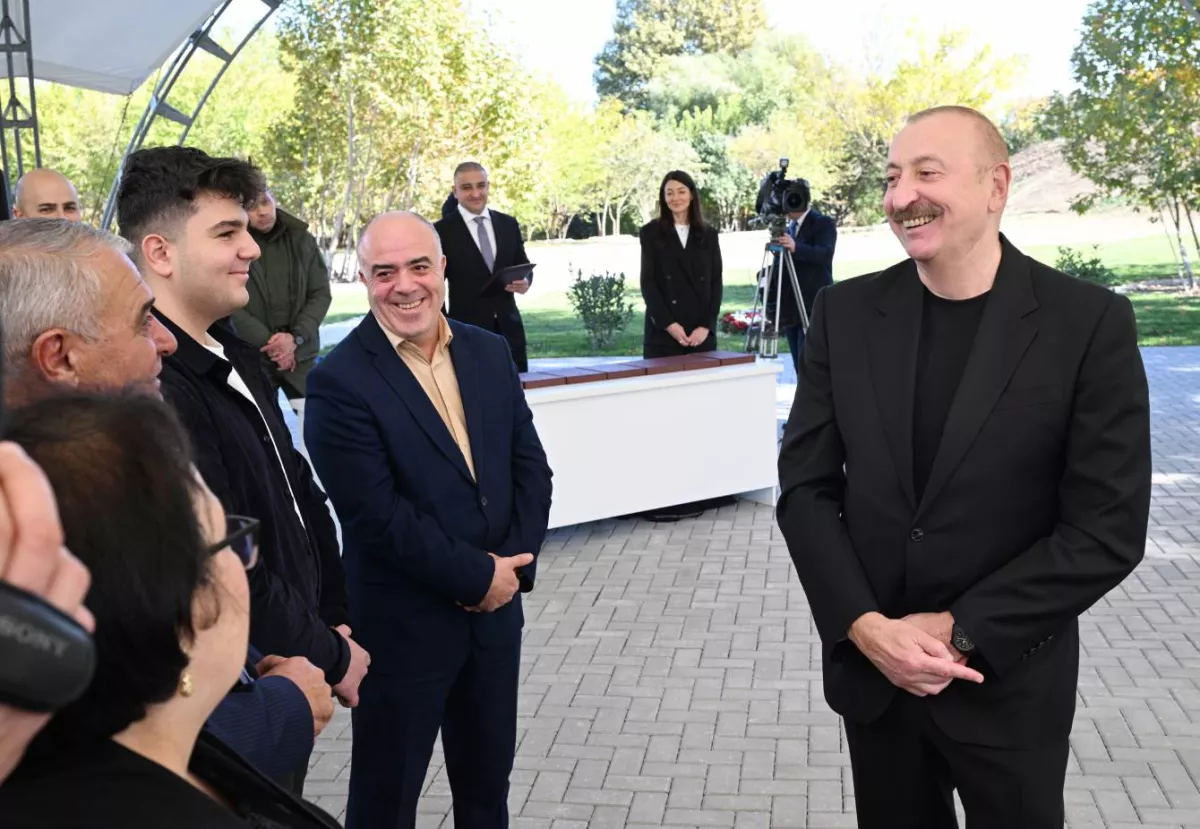
Defining these developments as a triumph of justice, President Ilham Aliyev underlined that believing in justice is not enough — it must also be upheld and ensured in practice.
What we are witnessing today — both with our own eyes and through the gaze of the world — across the lands liberated from occupation is truly a remarkable phenomenon. It cannot fail to astonish even Azerbaijan’s detractors, though they may not admit it openly. That, however, is their concern.
It is important to highlight how the Azerbaijani people’s faith — guided by their national leaders — in historical justice and in the righteousness of their cause has become the foundation for today’s massive reconstruction efforts in the liberated territories, as former internally displaced persons return to their native homes.
To better understand this course toward justice, we must look back to how it was shaped by National Leader Heydar Aliyev, who was elected Chairman of the Supreme Council of Azerbaijan on 15 June 1993.
On September 2 of the same year, in his message to the 42nd President of the United States, Bill Clinton, Heydar Aliyev described as a great injustice the adoption by the U.S. Congress at the end of 1992 of Section 907 of the “Freedom Support Act,” which prohibited direct assistance to the government of Azerbaijan. He emphasised that this discriminatory measure against Azerbaijan was justified by the alleged “blockade” of Armenia by Baku — a claim that bore no relation to reality. Moreover, Azerbaijan had repeatedly reaffirmed its commitment to a peaceful settlement of the conflict within the framework of the Minsk process under the then-Conference on Security and Cooperation in Europe (CSCE).
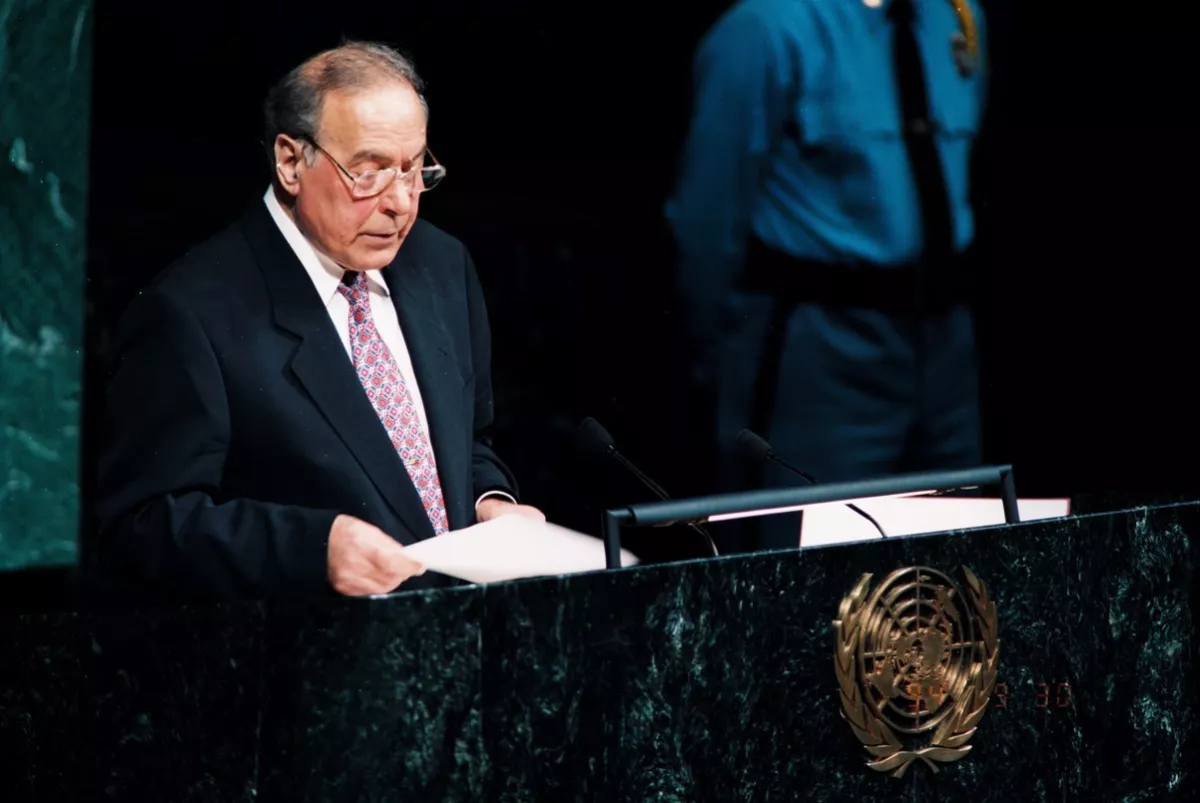
In 1994, the National Leader elaborated in greater detail that Azerbaijan intended to end the war through peace — but a just peace, one that entailed the liberation of all the country’s occupied lands from Armenian aggressors and the restoration of the Azerbaijani people’s rights across the entire territory. Heydar Aliyev particularly emphasised that in order to conduct bold and confident peace negotiations, Azerbaijan needed a strong army.
At the 49th session of the UN General Assembly in 1994, Heydar Aliyev declared that despite all the damage inflicted by the occupiers, Azerbaijan was offering the Armenian side peace based on international law, justice, and humanity — including the mutual restoration of normal communications in the region. At the same time, Baku would never renounce the inviolable principles of sovereignty and territorial integrity, the liberation of all occupied territories, and the return of refugees and internally displaced persons to their homes.
He clarified that only by eliminating the consequences of aggression in accordance with UN Security Council resolutions could a stable and constructive negotiation process be ensured — one aimed at establishing lasting peace and security for the entire population of the region.
That same year, Heydar Aliyev assured that Azerbaijanis would once again live on the lands where their ancestors had lived for centuries and would return to their native places. These hopes, he said, live and will continue to live in the hearts of the Azerbaijani people: “If our generation does not live to see this, future generations will. But our task today is to liberate the occupied lands, to ensure the inviolability of Azerbaijan’s internationally recognised borders and its territorial integrity.”
In 1995, Heydar Aliyev declared that both Shusha and Karabakh, as well as all occupied territories, would be liberated by any means necessary. Thanks to the will of the Azerbaijani people and the courage of its heroic sons, the country’s territorial integrity would be restored.
These ideas — along with his repeated appeal to the Washington administration to repeal Section 907 — were reiterated by the National Leader on many occasions.
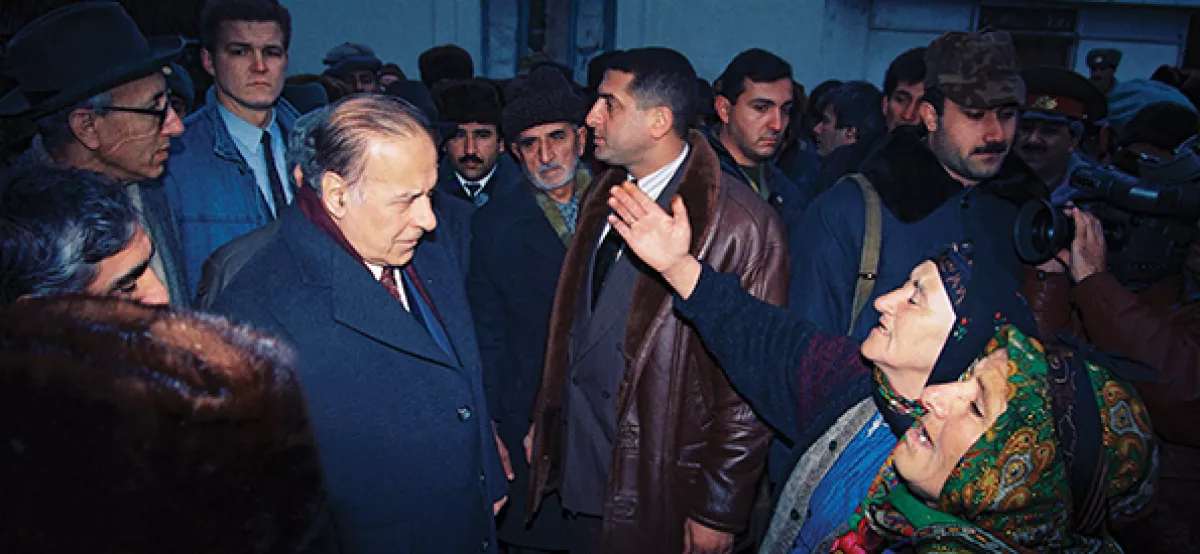
In 1998, Heydar Aliyev stated that sooner or later justice triumphs over reaction and evil, and that Azerbaijan, as a peace-loving state, would achieve the complete liberation of its lands in accordance with international legal norms and principles: “All refugees will return to their native homes, and the territorial integrity of our republic will be restored. Thanks to the strength and will of the Azerbaijani people, we will achieve all the lofty goals we have set for ourselves.”
In 2000, noting that the co-chairs of the OSCE Minsk Group did not recognise Armenia as the aggressor, Heydar Aliyev pointed out the absence of justice. And already in 2001, during a conversation with representatives of foreign media, he emphasised that Azerbaijan had not occupied a single metre of Armenian territory, whereas Armenia had seized Azerbaijani lands and expelled Azerbaijanis from them. “Our hopes for the co-chairs of the OSCE Minsk Group, represented by Russia, U.S. and France, have not brought about the expected results yet,” he declared.
In 2002, on the tenth anniversary of the Khojaly genocide, Heydar Aliyev once again affirmed that justice would prevail and that the independent Republic of Azerbaijan would live forever. A year later, he added: “Justice and international law are on our side; time works in our favour.” According to him, Azerbaijan, having strengthened itself economically, politically, and spiritually, had become an important factor in global politics.
President of Azerbaijan Ilham Aliyev, starting from late 2003, continued this course. On December 31, he stated the need for more active measures from the Minsk Group and for effective international pressure on the aggressor — measures that would help ensure the triumph of justice. The foundation of a just resolution to the conflict, he stressed, lies in the principles of liberating the occupied territories and ensuring the return of refugees and internally displaced persons to their native homes.
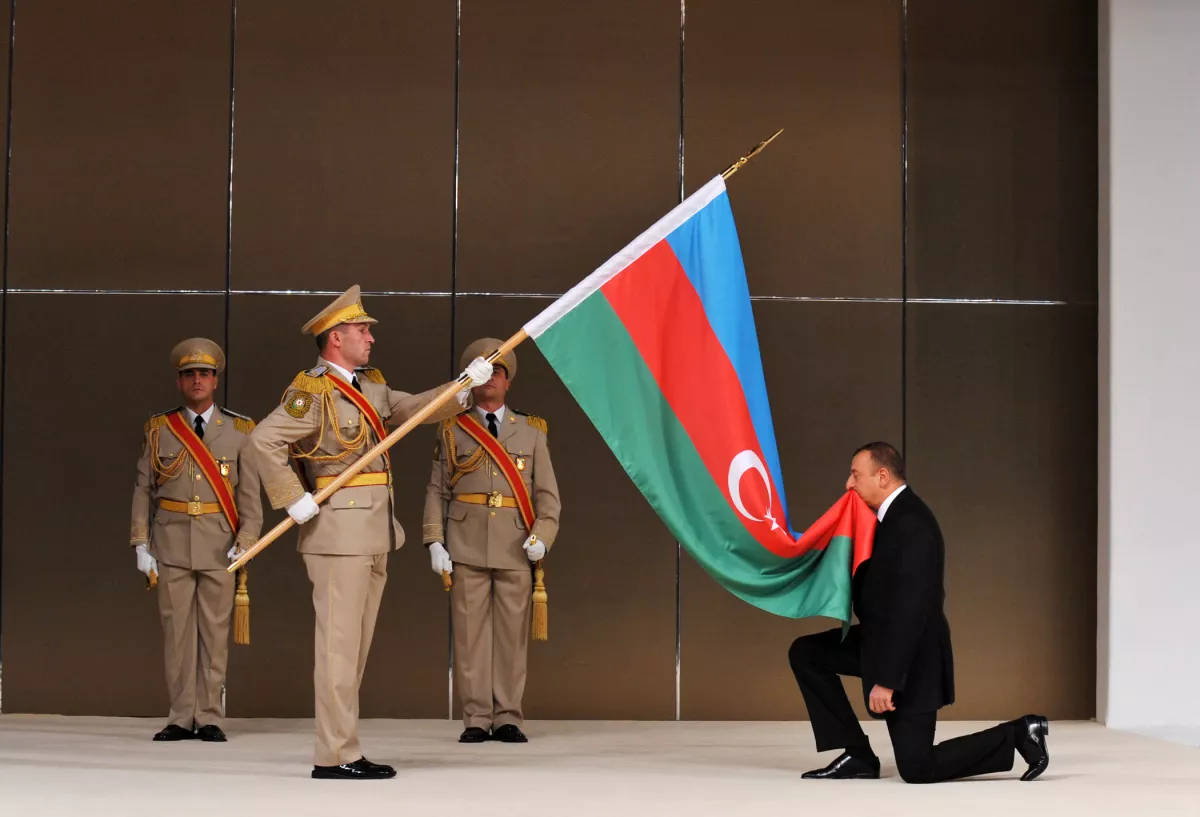
In his 2008 inaugural address, President Ilham Aliyev called the policy of ethnic cleansing carried out by Armenia on 20% of Azerbaijani territory, as well as the denial of return for refugees and displaced persons, the greatest injustice and a crime. He emphasised that the conflict must be resolved on the basis of international law, noting that “historical justice is on our side.”
At his inauguration ceremony in 2018, the head of state reaffirmed that the Azerbaijani people would never accept occupation and would liberate all captured territories.
It is clear that these facts vividly demonstrate the continuity of the course pursued by National Leader Heydar Aliyev and President Ilham Aliyev — a course aimed at restoring historical justice in the region.
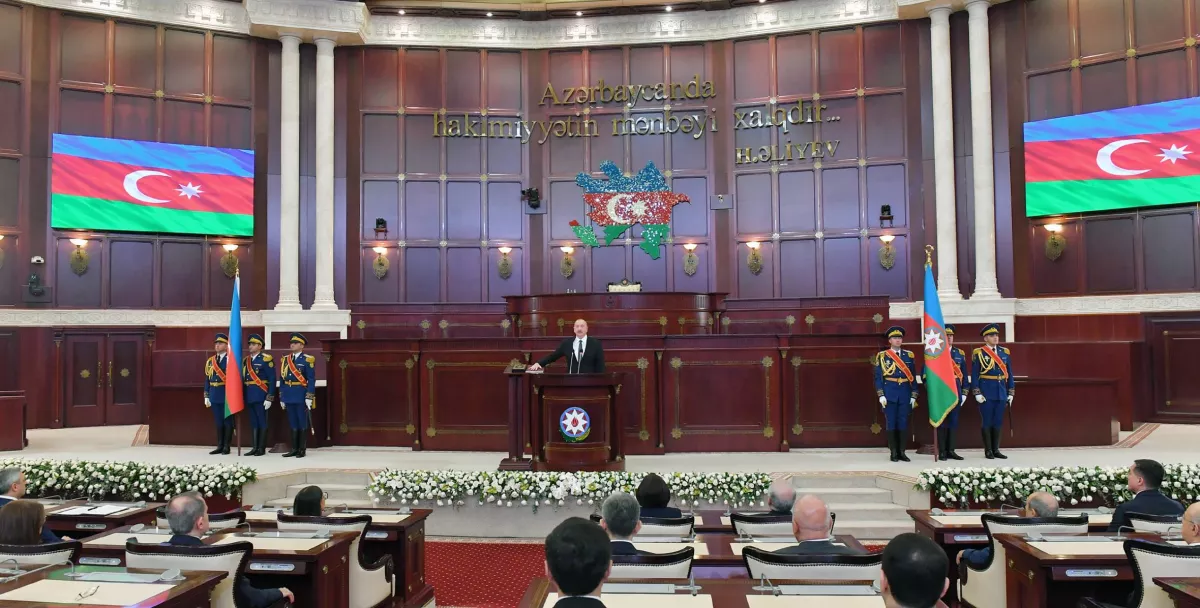
Today, this is recognised not only by Azerbaijan but by the entire world. Although the path was long and difficult, as President Ilham Aliyev emphasised in his 2024 inaugural address, the source of all achievements is the Azerbaijani people, their trust in leadership, and their ability to unite around a common goal. “We have proved to the whole world that we are a great nation, that we are in charge of our own destiny, that we are capable of solving the problems facing the country ourselves without anyone's help, and we are solving them once and for all.”
Today, the ill-fated Section 907 has been repealed. As President Aliyev noted, “The signing of the document repealing this unjust Section 907 of the Freedom Support Act in the Oval Office in my presence carries very symbolic significance.”
The long-standing OSCE Minsk Group has ceased to exist. Azerbaijan’s territorial integrity has been fully restored. Sovereignty is ensured across the entire state. Internally displaced persons are returning to their homes. In this way, historical justice — whose necessity was emphasised and whose realisation was pursued by both Heydar Aliyev and Ilham Aliyev — has triumphed.
And thus, the emphasis placed yesterday by the head of state, while handing over keys to residents of Horovlu village in the Jabrayil district — that it is not enough to simply believe in justice, but that it must also be ensured — became a crucial statement for the entire world.
As President Ilham Aliyev declared at the 5th Congress of World Azerbaijanis, from now on the Azerbaijani people will always live as a victorious nation, and the state as a victorious state: “This is excellent happiness – for all of us, for those living in Azerbaijan, Azerbaijani citizens, and Azerbaijanis living abroad.”








